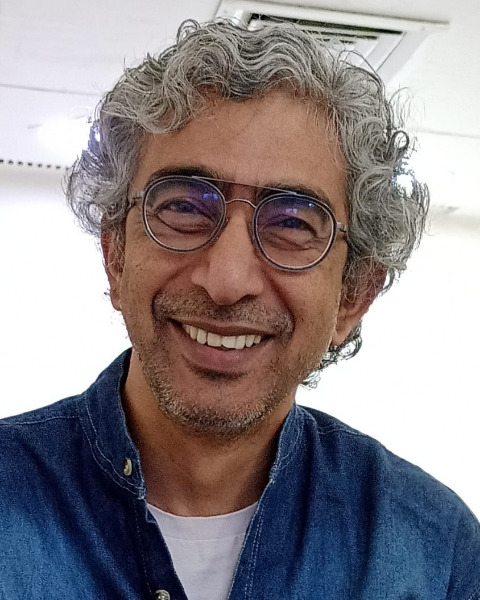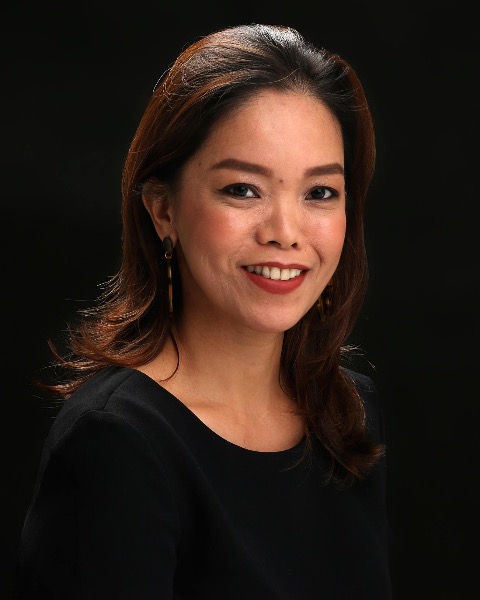Theme: 4. Seeing from the Neighbourhood: States, Communities and Human Mobility
Rethinking Community-engaged Approaches I: Principles, Methods, and Tools
-

Paul Rabe
International Institute for Asian Studies (IIAS), Netherlands
-
RP
Rita Padawangi
Singapore University of Social Sciences, Singapore
-
AP
Adrian Perkasa
International Institute for Asian Studies (IIAS), Netherlands
-
BN
Boonanan Natakun
Thammasat University, Thailand
-

Paul Rabe
International Institute for Asian Studies (IIAS), Netherlands
-
RP
Rita Padawangi
Singapore University of Social Sciences, Singapore
-
AP
Adrian Perkasa
International Institute for Asian Studies (IIAS), Netherlands
-
BN
Boonanan Natakun
Thammasat University, Thailand
-
AN
Anton Novenanto
Universitas Brawijaya, Indonesia
-
AR
Amanda Reichelt-Brushett
Southern Cross University, Australia
-
AS
Anuradha Sen Mookerjee
Institute for Human Development, India
-
DL
Dang Ly Quoc
Can Tho University, Vietnam
-
MW
Mohamed W. Fareed
The American University in Cairo, Egypt
-
SN
Sankha Nath
Independent Researcher, India
-
XZ
Xiaomei Zhao
Fudan University, China
-
XB
Xavier Benedict
AARDE Foundation, India
-
HH
Hayley Henderson
Australian National University, Australia
-
SM
Siti Maimunah
Sajogyo Institute, University of Mulawarman, Indonesia
-
TP
Teerapong Pomun
Mekong Community Institute Association, Thailand
-
TI
Tan Miau Ing
Universiti Malaya, Malaysia
-
LV
Lyno Vuth
Independent Artist, Cambodia
-

Surajit Sarkar
Kerala Museum, India
-
HN
Huiying Ng
Rachel Carson Center for Environment and Society, Ludwig-Maximillians University, Germany
-
AF
Awang Firmansyah
Surabaya State University, Indonesia
-
IR
Ikhsan Rosyid Mujahidul Anwari
Universitas Airlangga, Indonesia
-
PS
Puspitaningtyas Sulistyowati
Community Architects of East Java (Arkom Jatim), Indonesia
-
TT
Try Thuon
Royal University of Phnom Penh, Cambodia
-
YP
Yuni Prihayati
KALBU, Indonesia
-
ND
Nathalie Dagmang
Department of Fine Arts
Ateneo de Manila University -
NR
-
KU
-

Tessa Maria Guazon
University of the Philippines - Diliman, Philippines
Roundtable Convenor(s)
Roundtable Chair(s)
Roundtable Participant(s)
Roundtable Abstract:
Why do we conduct community engagement in our academic life and as a basis for policymaking? The term ‘community engagement’ is widely used in academic and policymaking realms, but the conceptualization and the application of community engagement vary. Community-engagement generally refers to a spectrum of approaches and commitments and a range of applications that are relevant and sensitive to community well-being and that promote the active involvement of community groups and organizations in collaboration with researchers and planners.
Community engagement has attracted a range of criticisms, which include furthering power inequalities between researchers and research subjects; objectification of community groups; perpetuation of local social inequalities by relying on elites to provide access; and others. Amidst such criticisms, community-engaged research is facing continuous resistance, which might also accelerate more broad-based resistance towards this participatory approach. Therefore, community engagement requires deeper thinking and insights about both its conceptual and practical dimensions to enable it to be a meaningful approach. Essential questions for practitioners of community engagement are: Why do we conduct community engagement in research, teaching, and other aspects of academia, as well as in policymaking? What are the principles of community engagement? What are its effective methods?
In this roundtable discussion, panelists will be asked to reflect on their own experiences in using community-engaged methods and how they learn these methods. Panelists will also reflect on the advantages and challenges of this approach, and what needs to be done for more meaningful community-engaged academic endeavors—both in research and policymaking—in the future.
Panelists will include principal investigators from all Southeast Asia Neighborhoods Network (SEANNET) teams as well as principal investigators from selected River Cities Network (RCN) teams that are applying community engagement techniques in their RCN projects. There will be an open call for RCN panelists, which will be disseminated in late-2023.
Roundtable sponsored by: Southeast Asia Neighborhoods Network (SEANNET) and River Cities Network (RCN), IIAS

.png)